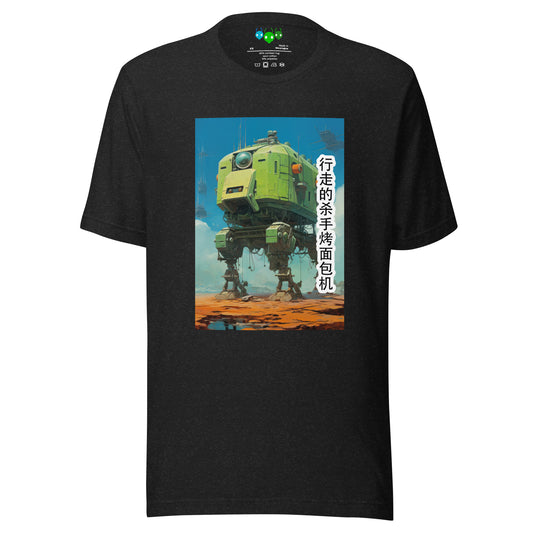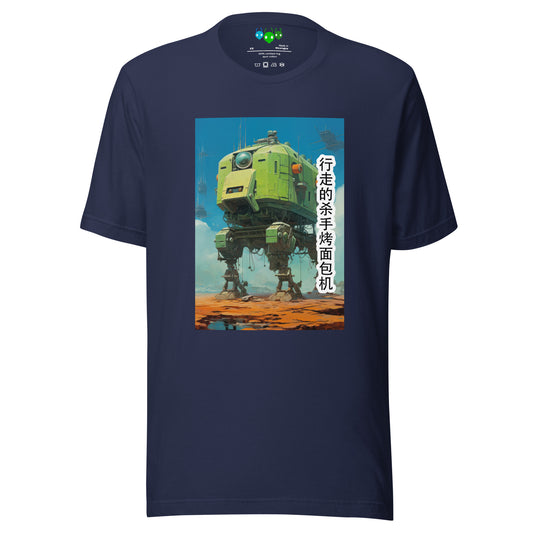Asian science fiction has emerged as a vital and dynamic force in the global science fiction landscape, profoundly shaping the genre through distinct cultural perspectives and futuristic visions. Japanese sci-fi, Korean sci-fi, and Chinese sci-fi, in particular, have gained international recognition, offering narratives that resonate deeply with both Eastern philosophies and contemporary global issues.
Japanese Science Fiction stands out with its exploration of technology's intersection with human emotion and identity. From the rise of mecha in Mobile Suit Gundam to the philosophical depths of Ghost in the Shell, Japanese sci-fi frequently examines the relationship between humans and machines. Themes such as artificial intelligence and posthumanism are central, reflecting Japan's cultural grappling with rapid technological advancement and its societal impacts.
In contrast, Korean Science Fiction tends to focus on dystopian futures and societal critique, often addressing class struggles, political corruption, and environmental degradation. Films like Snowpiercer and The Host offer stark visions of divided societies and ecological disasters, mirroring Korea's historical and economic divides. Korean sci-fi’s use of social commentary makes it a powerful medium for exploring real-world concerns through speculative lenses.
Chinese Science Fiction has gained global acclaim in recent years, particularly through works like Liu Cixin's The Three-Body Problem series. Chinese sci-fi often explores humanity's place in the universe, blending cosmic-scale storytelling with philosophical questions about survival, ethics, and the future of civilization. Rooted in China's historical context of rapid modernization and global influence, these narratives reflect the nation's ambitions and anxieties in a technologically driven future.
Collectively, Asian science fiction offers a rich tapestry of futuristic possibilities and speculative thought, providing readers with both entertainment and critical reflection on the direction of humanity. The rise of these narratives on the global stage demonstrates the genre's versatility and the importance of diverse cultural voices in shaping the future of science fiction.
This section of the Shop @ Science Fiction Classics is devoted to products inspired by Asian sci-fi.
日本のSFは、テクノロジーが人間の感情やアイデンティティと交差する点を深く掘り下げている点で際立っています。 『機動戦士ガンダム』に見られるメカの隆盛から、『攻殻機動隊』の哲学的な深みまで、日本のSFは人間と機械の関係を繰り返し考察しています。 人工知能やポストヒューマニズムといったテーマは中心的な位置を占め、急速な技術進歩とその社会的影響に対する日本の文化的取り組みを反映しています。
当店、SFクラシックスのこのコーナーは、日本のSFやアジアのSF作品に着想を得た商品を集めたコーナーです。 ご来店いただき誠にありがとうございます。ぜひ、お買い物をお楽しみください。
한국 SF는 디스토피아적인 미래와 사회 비판에 초점을 맞추는 경향이 있으며, 계급 투쟁, 정치 부패, 환경 파괴와 같은 문제들을 자주 다룹니다. "설국열차"와 "괴물"과 같은 영화들은 분열된 사회와 생태학적 재앙에 대한 냉혹한 비전을 제시하며 한국의 역사적, 경제적 분열을 반영합니다. 한국 SF는 사회적 논평을 활용하여 사변적인 시각을 통해 현실 세계의 문제를 탐구하는 강력한 매체입니다.
SF 클래식 샵의 이 코너는 한국 및 아시아 SF에서 영감을 받은 제품들을 소개합니다. 저희 웹사이트를 방문해 주셔서 감사하며, 즐거운 쇼핑 되시길 바랍니다.
近年來,中國科幻小說在全球獲得廣泛讚譽,特別是劉慈欣的《三體》三部曲等作品。中國科幻小說經常探索人類在宇宙中的地位,將宇宙規模的敘事與關於生存、倫理和文明未來的哲學問題相結合。這些故事根植於中國歷史背景下的快速現代化和全球影響力,反映了這個國家在技術驅動的未來中的雄心壯志和焦慮。
SF經典商店的這一部分專門介紹受中國和亞洲科幻小說啟發的產品。我們很高興您訪問我們的網站,希望您會考慮在我們這裡購物。








